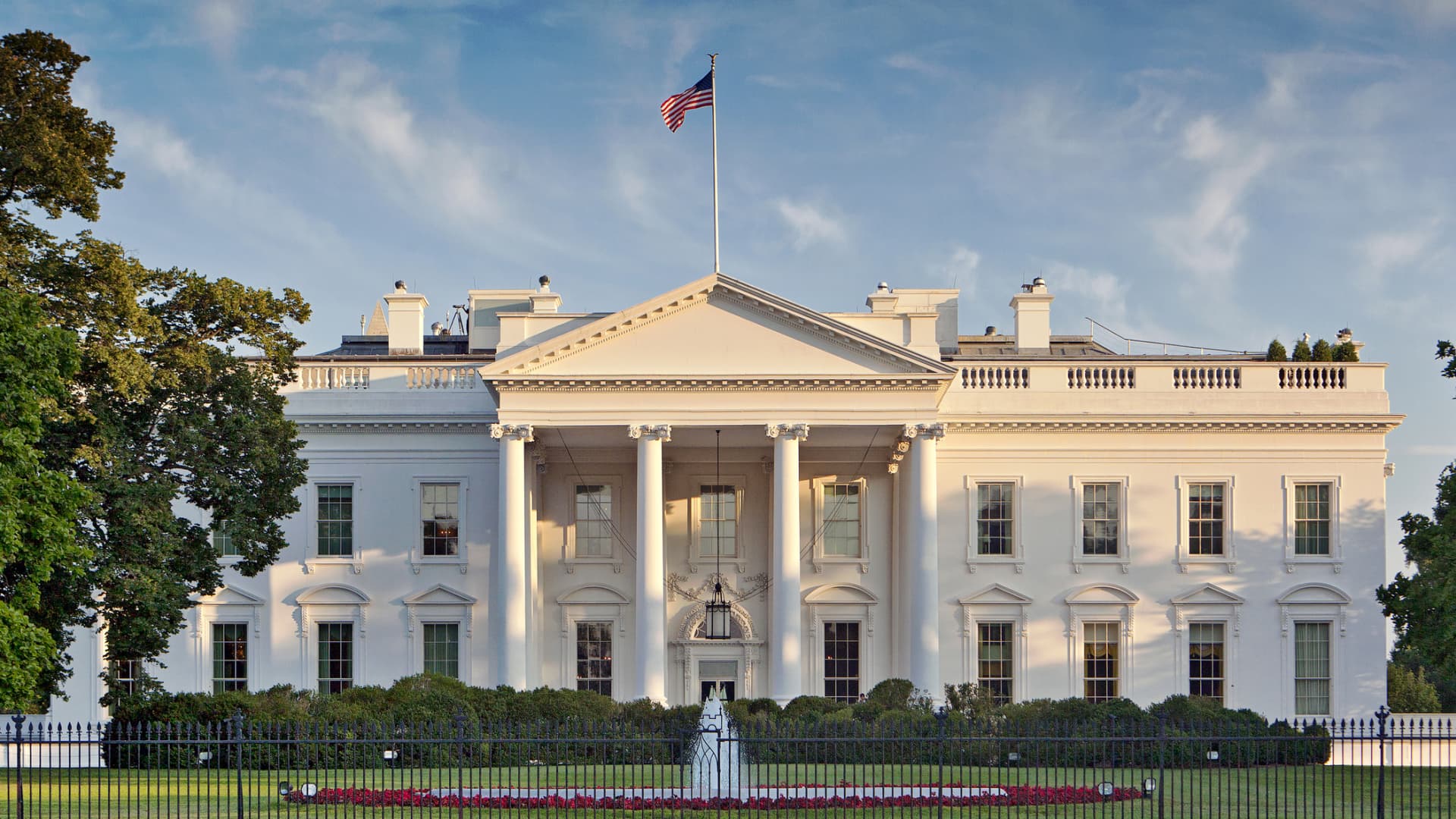The Biden administration is firing back at Republicans considering bringing a legal challenge against President Joe Biden’s historic move to forgive the student debt of tens of millions of Americans.
A White House spokesman, Abdullah Hasan, accused the GOP of double standards that punished the middle class.
“Let’s be clear about what they would be trying to do here: The same folks who voted for a $2 trillion tax giveaway for the rich and had hundreds of thousands of dollars of their own small business loan debt forgiven would be trying to keep millions of working middle-class Americans in mountains of debt,” Hasan told CNBC.
The news of a possible challenge from the right to Biden’s student loan forgiveness plan, which would cancel up to $20,000 for millions of borrowers, is unsurprising. Even before the president made his announcement, some Republicans were working to stop an effort to cancel the debt.
More from Personal Finance:
Here’s how to combat inflation with Labor Day deals
50% of employers expect job cuts, survey finds
Americans spend $314 a month on impulse purchases
Now, GOP attorneys general from states such as Arizona, Missouri and Texas, as well as Sen. Ted Cruz, R-Texas, and those connected to conservative think tank the Heritage Foundation, are considering their options on attempting to block the president’s plan.
That is sure to make anxious the tens of millions of Americans who were just last week celebrating their debt forgiveness. A drawn-out legal challenge would threaten to throw the fate of an estimated 43 million people’s debts into limbo for the foreseeable future.
The issue could make its way to the Supreme Court.
Establishing ‘standing’ for a lawsuit may not be easy
No lawsuit has been brought yet, and in a recent interview Cruz acknowledged the challenges to bringing one. “As a general matter, just being a taxpayer is not sufficient for the courts to conclude you have standing to challenge an expenditure of funds,” he said in an appearance on “The Liz Wheeler Show.”
“You have to find someone who was harmed by the expenditure of funds,” Cruz said.
Indeed, the first obstacle to those hoping to bring a legal challenge against Biden’s plan will be finding a suitable plaintiff, said Laurence Tribe, a Harvard law professor. It would likely have to be someone who can make the case that student loan forgiveness causes them “personal injury,” and that may not be easy.
“Such injury is needed to establish what courts call ‘standing,'” Tribe said. “No individual or business or state is demonstrably injured the way private lenders would have been if, for instance, their loans to students had been canceled.”
The White House, along with its announcement, released a 25-page memo by the U.S. Department of Justice making the case that debt cancellation is “appropriate” under the Heroes Act of 2003, which grants the president broad power to revise student loan programs. That law was passed shortly after the Sept. 11, 2001, terrorist attacks and permitted the executive branch to forgive student loans during national emergencies. The Trump administration declared the Covid-19 pandemic a national emergency in March 2020.
Opponents trying to block the forgiveness will likely argue that the Heroes Act doesn’t give the president the power to forgive student debt in the broad way he is trying to do, said higher education expert Mark Kantrowitz.
What a legal challenge means for borrowers
The U.S. Department of Education has said its application for loan cancellation will be available by or before October, and Kantrowitz said borrowers should not change their plans for now.
“Borrowers should apply for forgiveness and be cautiously optimistic,” he said.
That said, he advised it would be wise to not make any big financial changes based on the expectation of seeing student loan balances dropping in the short term.
“Even if a legal challenge doesn’t succeed in blocking the president’s plan, it will probably cause delays in implementing the loan forgiveness,” Kantrowitz said during a CNBC Twitter Spaces appearance Friday.
